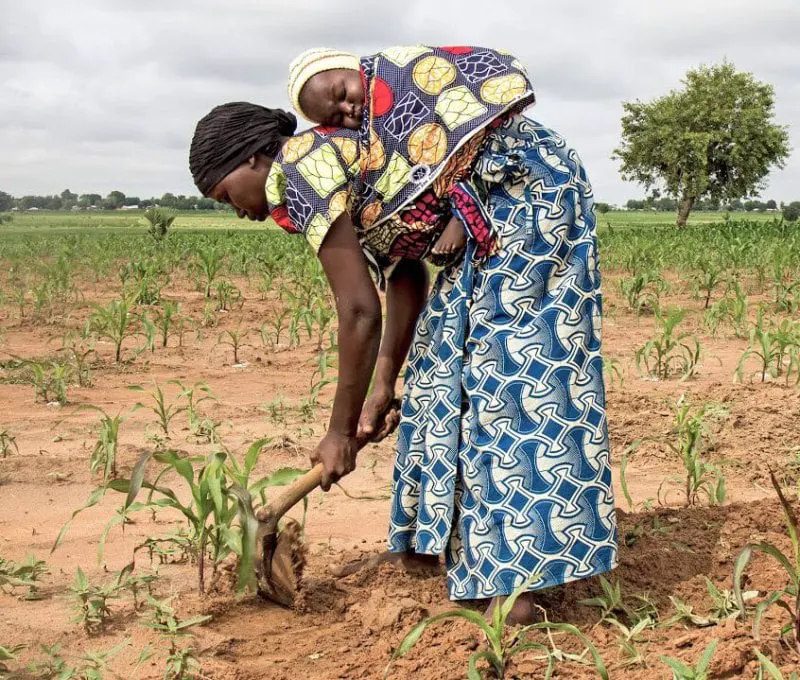Ending hunger: Researchers are giving smallholder farmers the wrong advice, study claims
Ending hunger: Researchers are giving smallholder farmers the wrong advice, study claims


How can research help to end hunger? One way to answer this question is to assess published research on hunger, and determine which interventions can make a difference to the lives of the 690 million people who go hungry every day.
That’s what an international research consortium called Ceres2030 has been doing. And the results of its 3-year effort to review more than 100,000 articles are published this week across the Nature Research journals. The consortium’s findings …. are both revealing and concerning.
…
Rural poverty and food insecurity go hand in hand, and yet the Ceres2030 researchers found that the overwhelming majority of studies they assessed — more than 95% — were not relevant to the needs of smallholders and their families.
…
Every year, food rots in the field, or later on, because of inadequate storage. But nearly 90% of interventions aiming to reduce these losses looked at how well a particular tool, such as a pesticide or a storage container, worked in isolation.
…
Smallholders need new technologies, but they also need research on the effectiveness of existing interventions — such as whether crops such as maize (corn) are best dried on the plant or after harvest on the ground.
The Ceres2030 collaboration is to be congratulated for highlighting these issues. The group had two funders, the Bill & Melinda Gates Foundation in Seattle, Washington, and the German Federal Ministry for Economic Cooperation and Development.
Read the original post

 | Videos | More... |

Video: Nuclear energy will destroy us? Global warming is an existential threat? Chemicals are massacring bees? Donate to the Green Industrial Complex!
 | Bees & Pollinators | More... |

GLP podcast: Science journalism is a mess. Here’s how to fix it

Mosquito massacre: Can we safely tackle malaria with a CRISPR gene drive?

Are we facing an ‘Insect Apocalypse’ caused by ‘intensive, industrial’ farming and agricultural chemicals? The media say yes; Science says ‘no’
 | Infographics | More... |

Infographic: Global regulatory and health research agencies on whether glyphosate causes cancer
 | GMO FAQs | More... |

Why is there controversy over GMO foods but not GMO drugs?

How are GMOs labeled around the world?

How does genetic engineering differ from conventional breeding?
 | GLP Profiles | More... |

Alex Jones: Right-wing conspiracy theorist stokes fear of GMOs, pesticides to sell ‘health supplements’




 Trust issues: What happens when therapists use ChatGPT?
Trust issues: What happens when therapists use ChatGPT? California, Washington, Oregon forge immunization alliance to safeguard vaccine access against federal undermining
California, Washington, Oregon forge immunization alliance to safeguard vaccine access against federal undermining Fighting deforestation with CO2: Biotechnology breakthrough creates sustainable palm oil alternative for cosmetics
Fighting deforestation with CO2: Biotechnology breakthrough creates sustainable palm oil alternative for cosmetics Viewpoint — Fact checking MAHA mythmakers: How wellness influencers and RFK, Jr. undermine American science and health
Viewpoint — Fact checking MAHA mythmakers: How wellness influencers and RFK, Jr. undermine American science and health 30-year-old tomato line shows genetic resistance to devastating virus
30-year-old tomato line shows genetic resistance to devastating virus The free-range chicken dilemma: Better for birds, but with substantial costs
The free-range chicken dilemma: Better for birds, but with substantial costs Viewpoint: Video — Big Solar is gobbling up productive agricultural land and hurting farmers yet providing little energy or sustainabilty gains
Viewpoint: Video — Big Solar is gobbling up productive agricultural land and hurting farmers yet providing little energy or sustainabilty gains ‘You have to treat the brain first’:Rethinking chronic pain with Sanjay Gupta
‘You have to treat the brain first’:Rethinking chronic pain with Sanjay Gupta
